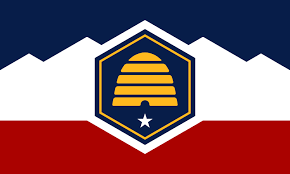In Utah, a veto referendum has qualified for the Nov. 3, 2026, ballot, allowing voters to decide whether to uphold or repeal House Bill 267 (HB 267). The bill would prohibit public sector unions from entering into collective bargaining agreements. It would take effect only if a majority of voters support upholding it in the election.
In total, Protect Utah Workers, the campaign in opposition to HB 267, submitted 324,410 signatures, 230.5% of the required 140,748. Of the signatures submitted with the referendum petition, 251,590 signatures were verified, and 73,136 were rejected. That amounts to a signature validity rate of 77.5%. This satisfies the signature requirement in Utah, which is equal to at least 8% of active voters. For a 2026 election, that amounted to 140,748 signatures.
Lt. Gov. Deidre Henderson released a comprehensive list of Senate districts that achieved sufficient numbers of signatures to place the referendum on the ballot. The petition needed signatures from 8% of active voters in at least 15 of 29 senate districts in the state. Signatures in 23 senate districts crossed the 8% threshold, while six—Senate Districts 1, 2, 20, 27, 28, and 29—did not.
Gov. Spencer Cox (R) signed HB 267 into law on Feb. 14. The state House passed the bill with a 42-32 vote, with one representative absent. Forty-two Republicans voted yes, and 18 Republicans and 14 Democrats voted no. The state Senate passed the bill with a 16-13 vote. Sixteen Republicans voted yes, and seven Republicans and six Democrats voted no.
Concerning their opposition to the law, Protect Utah Workers stated that the ban on collective bargaining would cause public workers to “lose their most effective tool for advocating workplace improvements.”
The Utah Education Association, an opponent of HB 267, said the bill would damage union access in the workplace. A statement on their website says, “Restricting union access weakens employee protections and silences workers' voices. While casual workplace conversations remain legal during breaks, this bill reduces meaningful union support where it’s needed most.”
Americans for Prosperity Utah, an organization that supports upholding HB 267, stated, “Currently, taxpayer-funded spaces, equipment, and resources are often used for union business, diverting public funds away from essential services…The bill requires unions to follow the same rules as any other group when using public property, ensuring fairness and preventing special privileges at taxpayer expense.”
Utah Parents United, which supports upholding HB 267, said the bill “requires transparency in political activity, and stops our tax dollars from funding union business during school hours.”
In the lead-up to the signature submission deadline, Protect Utah Workers reported more than $3.4 million in campaign contributions. Of that number, $2.2 million was cash contributions and $1.2 million was in-kind contributions. The National Education Association, the campaign’s top donor, gave $2.3 million in combined in-kind and cash contributions. Other top donors to the campaign were the Utah Education Association, AFSCME, UFCW Local 99, and the Utah School Employees’ Association.
Utahns for Worker Freedom, also known as Protect All Utahns, filed as the campaign backing the effort to uphold HB 267. As of April 11, the last required report date for financial disclosure, Utahns for Worker Freedom had not reported any financial or in-kind contributions to the campaign. The next submission deadline for a campaign finance report in Utah is Sept. 30.
The ballot measure is the sixth veto referendum that Utah voters will decide in the history of the state. In all five prior cases, the referendum efforts resulted in the targeted law being repealed. Utah is also the only state where voters have repealed every law placed on the ballot through the veto referendum process.
- Referendum 1, Education Vouchers Program Measure (2007)
- Referendum 1, Permit the Land Use Act to be Enacted Measure (1974)
- Referendum 1, End State Operation of Dixie, Snow, and Weber State Colleges Measure (1954)
- Referendum 2, Discontinue Carbon College and Dispose of its Property Measure (1954)
- Chain Store License Tax Referendum (1942)
The veto referendum is joined by two constitutional amendments on the Utah ballot. The first amendment would require that future citizen-initiated state statutes need a 60% supermajority vote in the election to pass if the initiative increases taxes. Currently, all citizen initiatives require only a simple majority (50% plus one vote) to pass into law.
The second amendment would update the publication requirement for proposed constitutional amendments. Currently, amendments must be published in at least one newspaper in each county in the state for at least two months preceding the election. If the ballot measure is approved, the newspaper requirement would be abolished, allowing publication on the state legislature’s website to meet the constitutional requirement to notify the public.
Two other initiatives are gathering signatures in Utah. The first initiative would require Utah to follow the congressional district method when assigning electoral votes to presidential candidates. The congressional district method is presently used by two states, Nebraska and Maine. The second initiative would require the lieutenant governor to create and maintain a secure website for voters to file and sign initiative and referendum petitions electronically. All signatures for initiatives must be submitted 30 days after the first signature is received, or by Feb. 15, 2026, whichever is earliest.
Additional reading:


